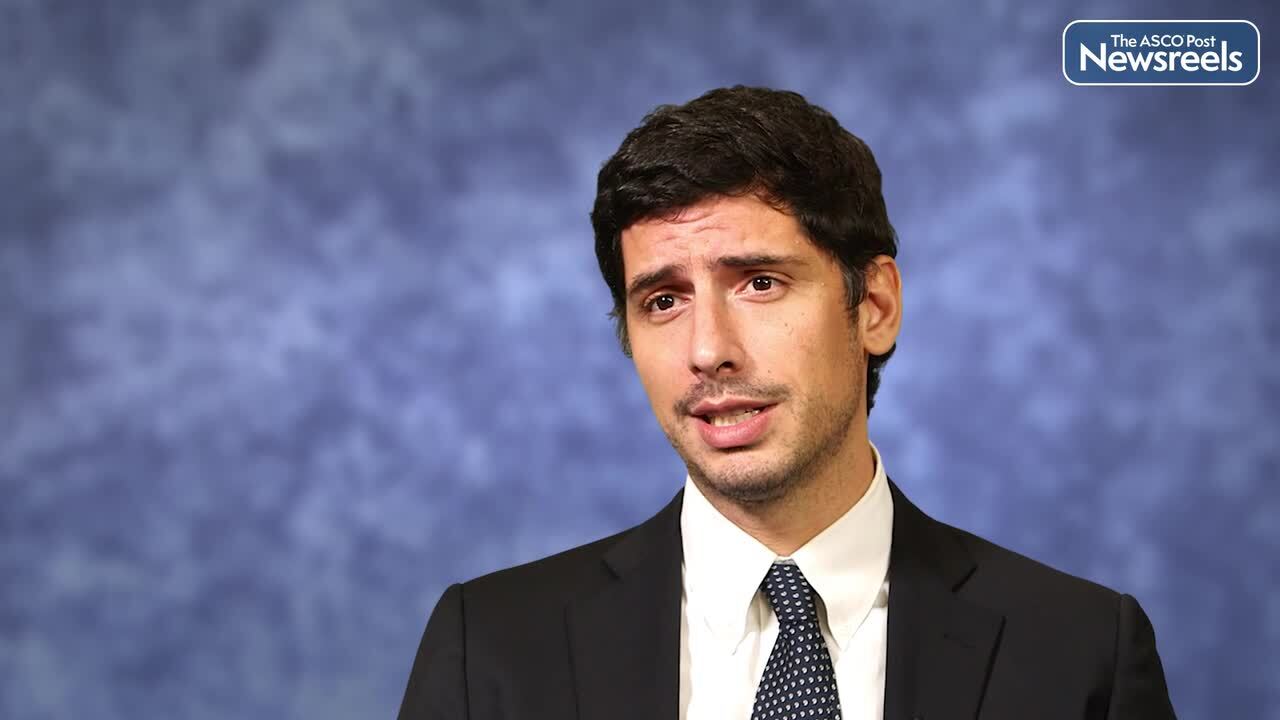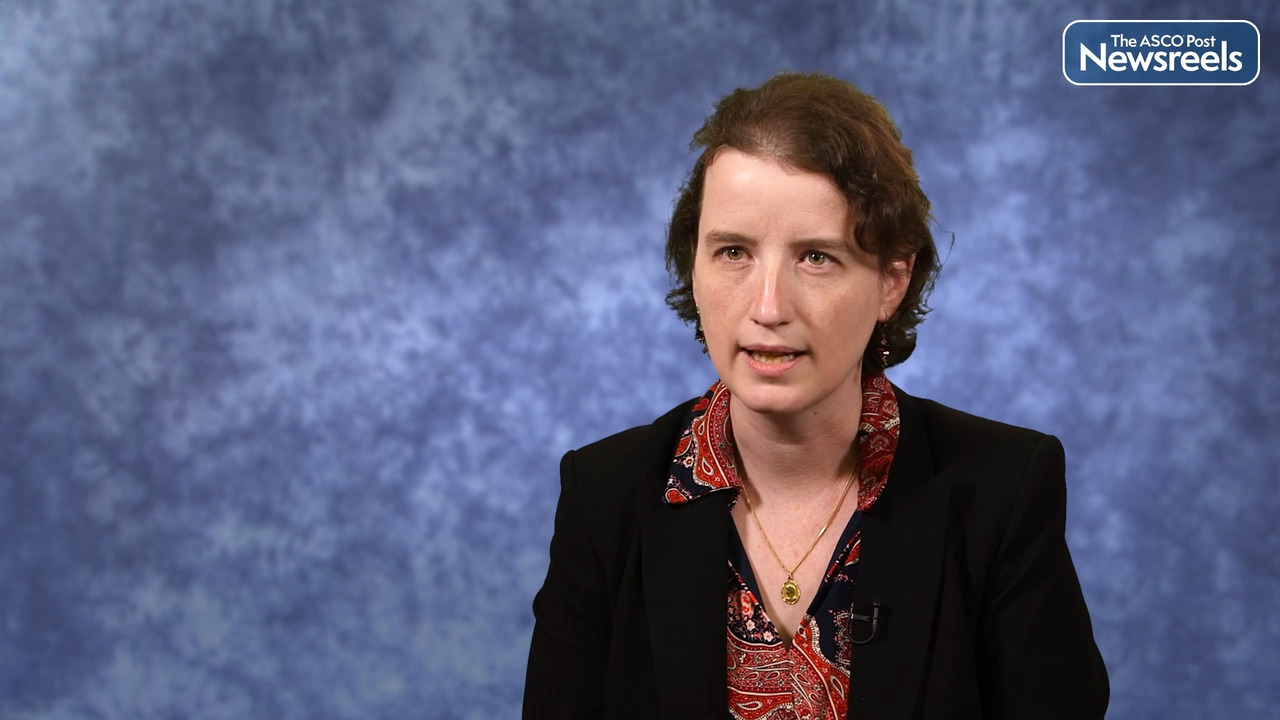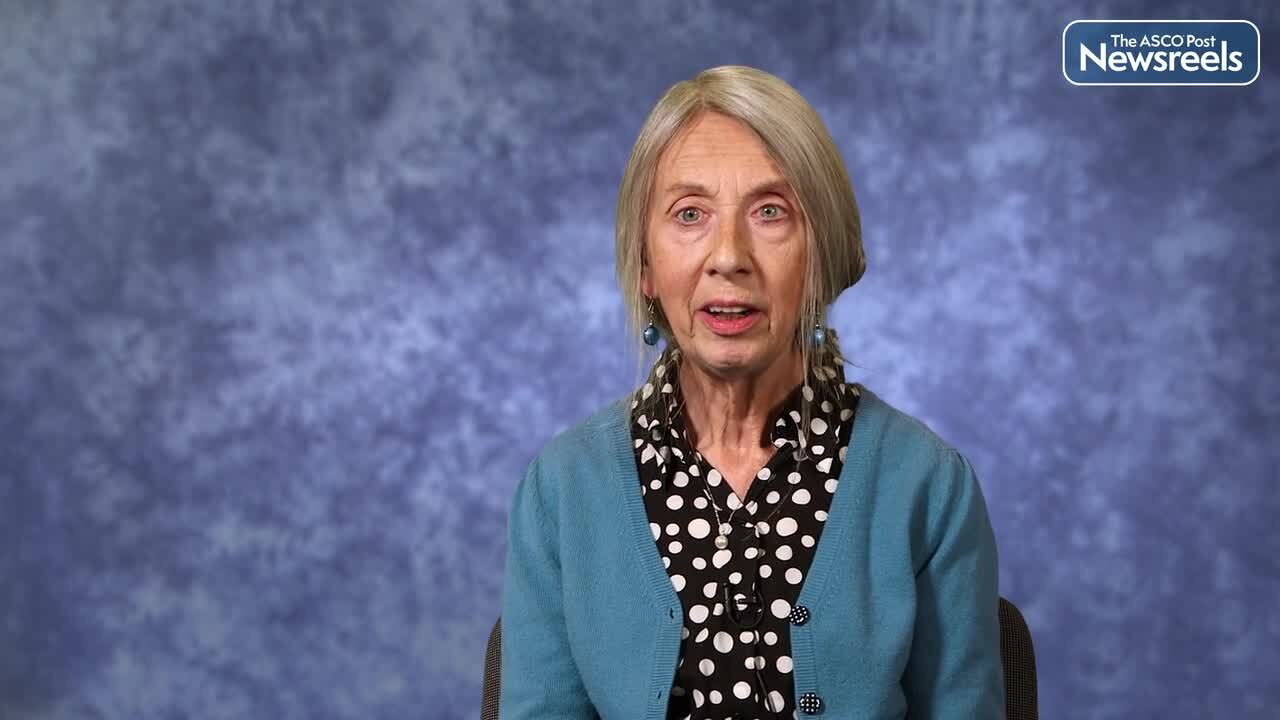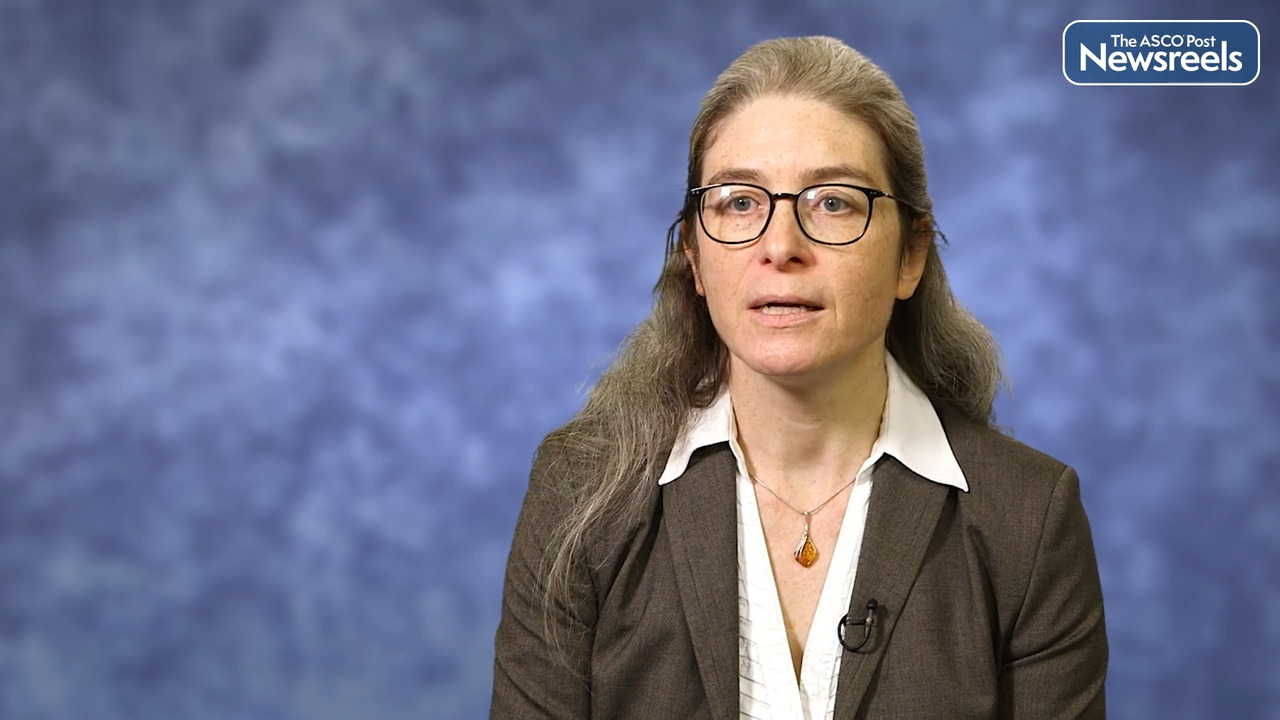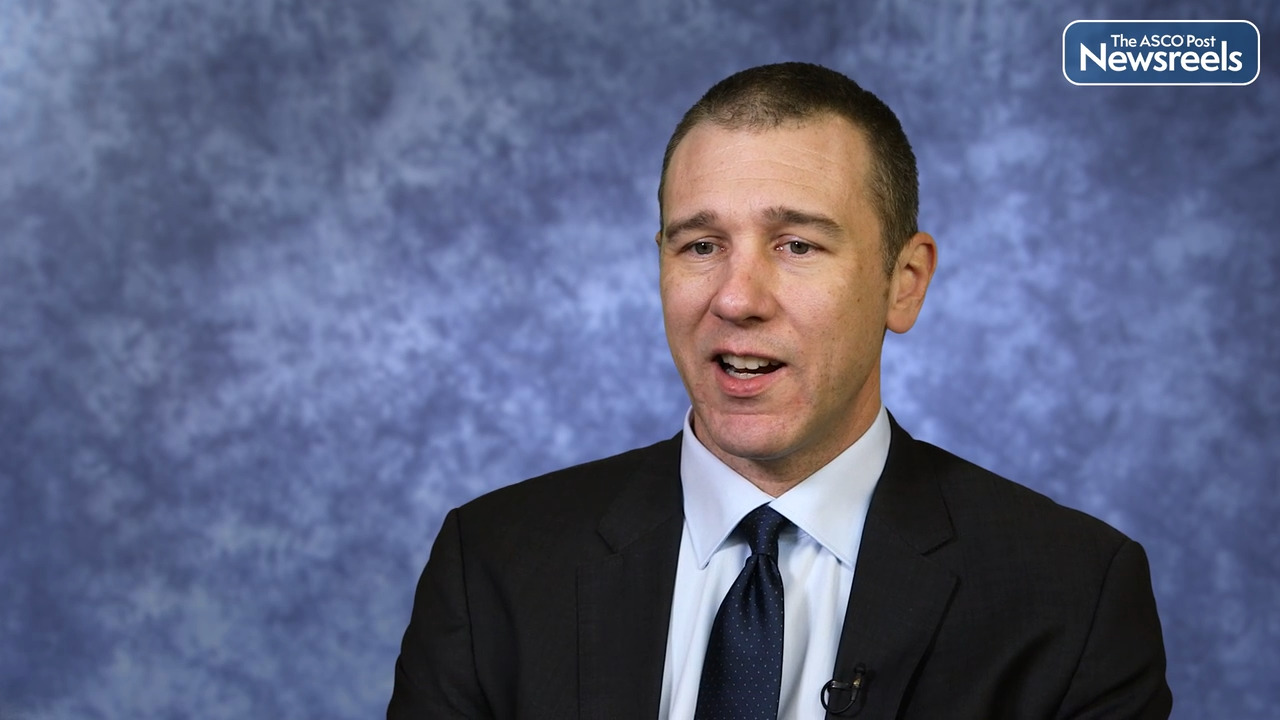Smita Bhatia, MD, MPH: Some Clonal Mutations May Predict Therapy-Related Myeloid Neoplasms
2022 ASH Annual Meeting and Exposition
Smita Bhatia, MD, MPH, of the Institute for Cancer Outcomes and Survivorship, University of Alabama at Birmingham, discusses study findings that showed key somatic mutations in the peripheral blood stem cell product increases the risk of developing therapy-related myeloid neoplasms (Abstract 119).
Transcript
Disclaimer: This video transcript has not been proofread or edited and may contain errors.
Therapy related leukemia is a lethal complication of autologous transplantation for Hodgkin lymphoma and non-Hodgkin lymphoma. Now, there are some very well known clinical factors that increase the risk. These include older age at transplantation, pre-transplant exposures to alkylating agents and radiation, and then exposure to total body radiation, and a lower dose of CD34 positive cells that are infused. More recently, there has been increasing attention to what's called clonal hematopoiesis. These are somatic mutations that are present in the peripheral blood, which are in healthy people known to increase the risk of subsequent leukemia. And these have also been studied recently in cancer patients. But there are some gaps in knowledge and these are, what are the factors associated with clonal hematopoiesis? Whether it is just older age, or any treatments increase the risk? And then are there specific mutations that increase the risk of therapy related leukemia?
So we addressed this gap in about 1,328 patients with lymphoma, where we had cryopreserved peripheral blood stem cells. We looked at specific mutations and found that they were present in 33% of our survivors. And one third had multiple mutations, two thirds had a single mutation. And we found that there was a clear association between multiple mutations and therapy related leukemia, not with single mutations. So that was a novel finding for us. Going forward beyond that, we also found that Hodgkin lymphoma patients were at a higher risk of therapy related leukemia, as were males. And what we did was then we dug in deeper and found in males PPM1D increased the risk of therapy related leukemia. While in females, there was no association within these clonal hematopoiesis and therapy related leukemia. When we look at Hodgkin lymphoma and non-Hodgkin lymphoma patients, it's primarily TP53 mutations which increase the risk.
Coming back to specific mutations, we find that TP53, any TP53 mutations, confer the highest risk. This is followed by any PPM1D mutations, while presence of DNMT3A mutations alone, without any PPM1D or TP53 mutations, don't confer any risk at all. Presence of single or multiple mutations are associated with non relapse mortality, not with relapse related mortality. So in conclusion, what we find is that older age and exposure to therapy related factors such as alkylating agents increase the risk of clonal hematopoiesis. And then amongst the patients who have clonal hematopoiesis, it's the male sex, Hodgkin lymphoma and presence of multiple mutations that increase the risk. And also the fact that PPM1D and TP53 are the major driving forces here. Where do we want to go next? We need to see how these key mutations interact with hematopoietic stressors and use this information to further our understanding of the pathogenesis of therapy related leukemia, and also to develop predictors that help us understand who's at risk for therapy related leukemia.
The ASCO Post Staff
Francesco Maura, MD, of the University of Miami, Sylvester Comprehensive Cancer Center, discusses his team’s findings in which they defined a comprehensive catalogue of genomic determinants of response to DKRd (carfilzomib, lenalidomide, dexamethasone) in newly diagnosed multiple myeloma. The researchers have identified a number of new genomic alterations that explain resistance to the agents currently used in combination regimens (Abstract 470).
The ASCO Post Staff
Eileen M. Boyle, MD, PhD, of the Perlmutter Cancer Center, NYU Langone Health, discusses Fc-mediated antibody effector function, inflammation resolution, and oligoclonality and their role in predicting sustained measurable residual disease negativity in patients with newly diagnosed multiple myeloma who were treated with immunotherapy regimens. For the first time, an analysis of T-cell receptors shows that oligoclonal profiles seen on treatment may influence the fitness of the immune response (Abstract 100).
The ASCO Post Staff
Irene Roberts, MD, of Oxford’s Weatherall Institute of Molecular Medicine, discusses children with Down syndrome, who have a more than 100-fold increased risk of developing acute myeloid leukemia before their fourth birthday compared to children without Down syndrome. Their risk of acute lymphoblastic leukemia is also increased by around 30-fold. Dr. Roberts details current knowledge about the biologic and molecular basis of this relationship between leukemia and Down syndrome, the role of trisomy 21 in leukemogenesis, and the clinical implications of these findings.
The ASCO Post Staff
Eva Hoster, PhD, of Munich University, discusses results from the European MCL Elderly Trial, which confirmed the strong efficacy of rituximab maintenance in minimal residual disease (MRD)-negative patients with mantle cell lymphoma (MCL) after induction. Omitting maintenance based on MRD-negativity is thus discouraged. Considering the short time to progression, more effective treatment strategies should be explored in MRD-positive patients to improve long-term prognosis (Abstract 544).
The ASCO Post Staff
Paolo F. Caimi, MD, of the Taussig Cancer Institute, Cleveland Clinic, discusses new findings showing that patients with diffuse large B-cell lymphoma (DLBCL) who achieve a complete response after salvage therapy with rituximab, ifosfamide, carboplatin, and etoposide (R-ICE) can achieve long-term disease control, regardless of the time to relapse from initial therapy, particularly if they proceed to autologous stem cell transplant (ASCT). These results suggest that second-line chemotherapy followed by ASCT and/or CAR T-cell therapy for chemosensitive and chemorefractory patients may maximize patient outcomes, regardless of time to relapse (Abstract 156).
